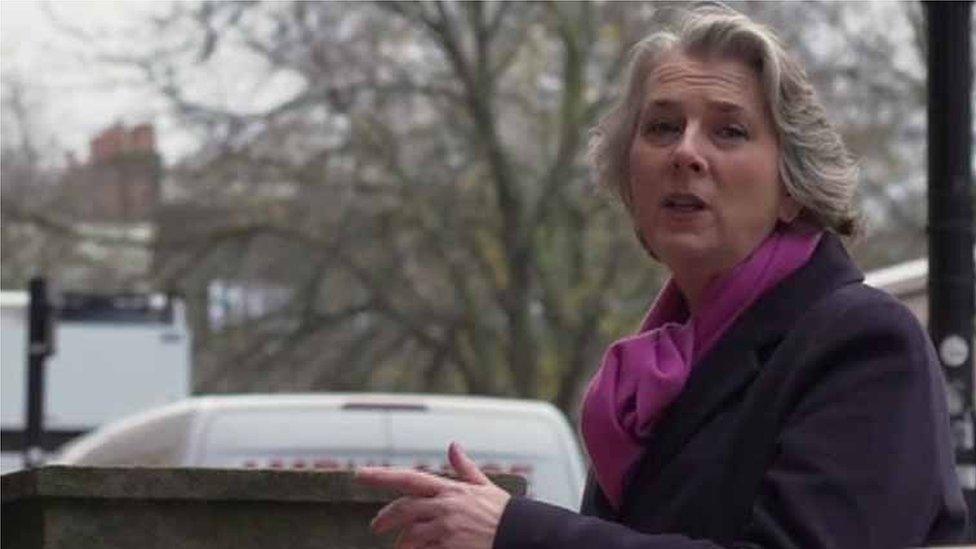Cambridge MS centre given £1.85m grant to begin 'new era'
- Published
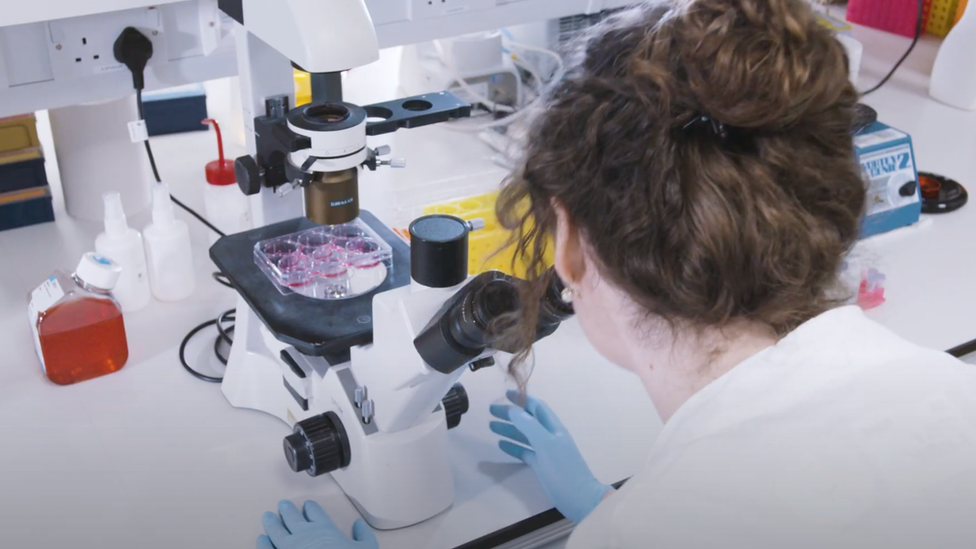
MS Society has awarded a grant of £1.85m for a "Centre of Excellence" in Cambridge
A charity has donated £1.85m to create a new multiple sclerosis research "centre of excellence".
MS Society, external hopes the funding will help its scientists in Cambridge to find new treatments faster for people with progressive forms of the condition.
Multiple sclerosis (MS) is a neurological condition which damages nerves in the body, making it harder to do things such as walk, talk and eat.
Scientists said the centre would be the start of a "new era" for MS treatment.
The charity has also awarded £1.85m to researchers at the University of Edinburgh.
The centres will work together closely with the aim of stopping MS and training the next generation of research scientists.
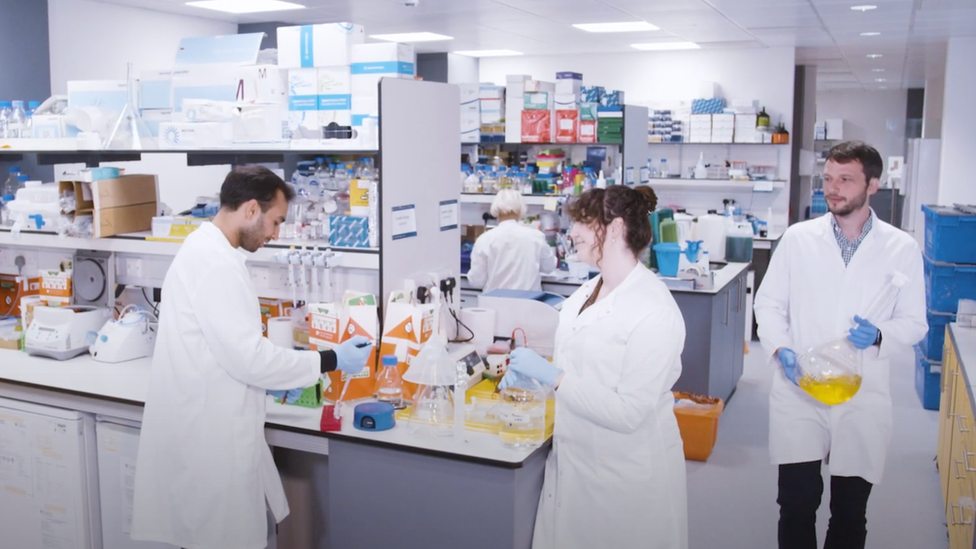
The research for new treatment was "desperately needed", a scientist said
MS affects more than 130,000 people in the UK and for those with progressive forms there is currently no treatment to stop the symptoms becoming more severe.
In order to stop MS, researchers need to find treatments which can replace lost myelin - the protective coating that surrounds nerves.
The MS Society Cambridge Centre for Myelin Repair will study remyelination in people of all ages with MS.
Dr Emma Gray, assistant director of research at the MS Society, said the work at the Cambridge centre was "inventive, innovative and incredibly exciting".
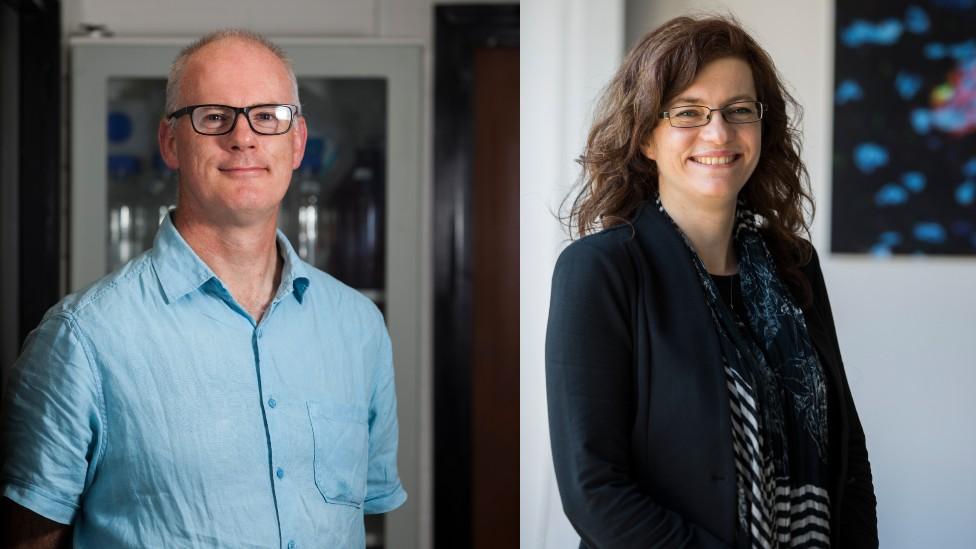
Prof Alasdair Coles and Dr Thora Karadottir will co-lead work at the Cambridge "Centre of Excellence"
The centre previously discovered a way to increase myelin repair in rats and hopes to build on this to develop myelin repair drugs for humans.
Researchers will also explore new ways to test how effective the drugs are in clinical trials.
The Cambridge team hopes to be the first centre in the world to routinely assess myelin in people with MS.
Prof Alasdair Coles, who will co-lead work at the Cambridge centre with Dr Thora Karadottir, said: "We are excited to build on the Cambridge centre's strong foundations in developing new treatments for people with MS, and bring in what we believe will be a new era for MS treatment.
"Thanks to this generous donation, we can make discoveries that will benefit people living with MS worldwide - including the myelin repair therapies that are still so desperately needed."
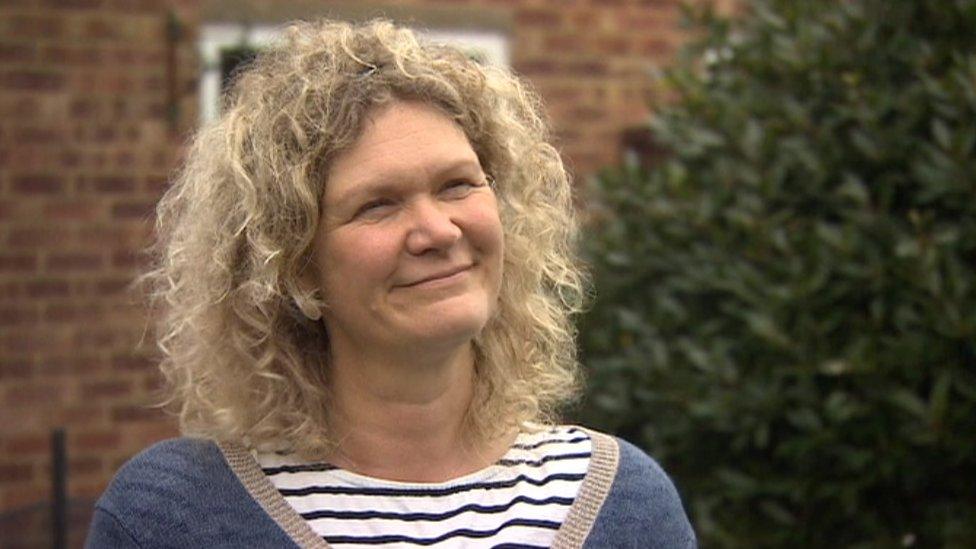
Lara Kingsman said she experiences "huge periods of fatigue, dizziness and nausea"
Lara Kingsman, 50, was diagnosed with MS in 2017 after waking up and being unable to feel anything from the waist down.
"I have relapsing remitting MS," she said.
"It kind of flares up and then calms down again, but I'll never go back to how I was before I was diagnosed."
Ms Kingsman, from Histon in Cambridgeshire, said the news of the funding was "absolutely fantastic".
"The thought that people in the future won't have to go through what I and 130,000 other people are going through, to varying degrees, is just wonderful," she said.
"It's a massive thing and although I might not be able to reap the benefits in my lifetime, things are changing so fast and the work they've been doing in Cambridge is world-class."

Find BBC News: East of England on Facebook, external, Instagram, external and Twitter, external. If you have a story suggestion email eastofenglandnews@bbc.co.uk, external
- Published16 February 2021
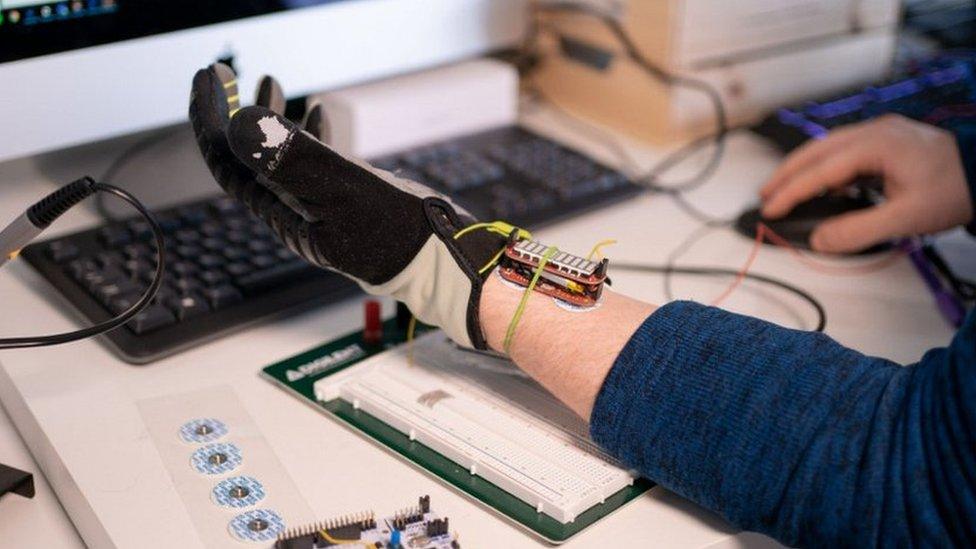
- Published8 February 2021
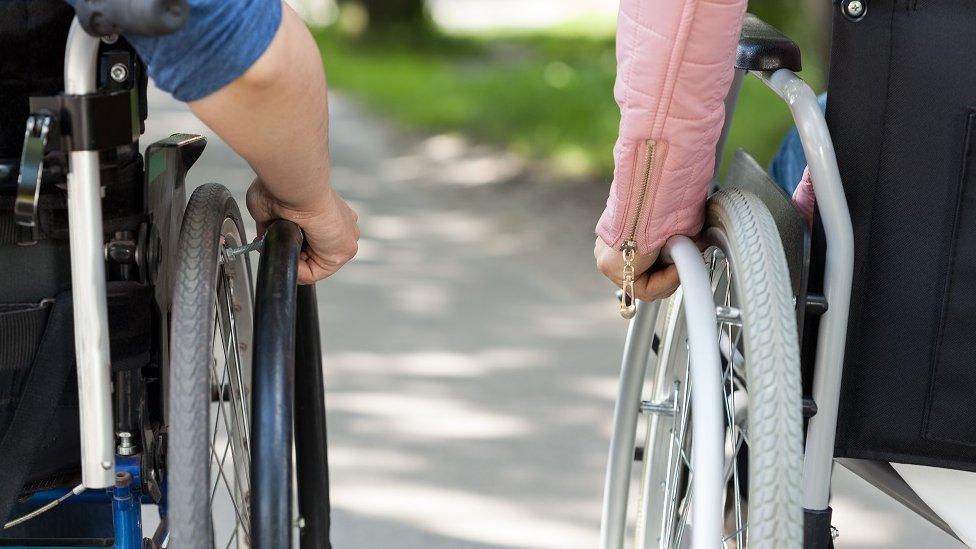
- Published18 December 2020
